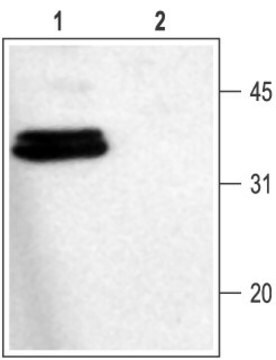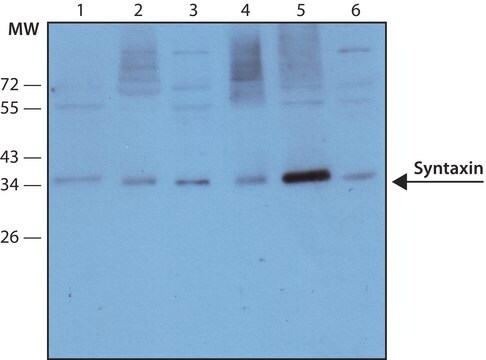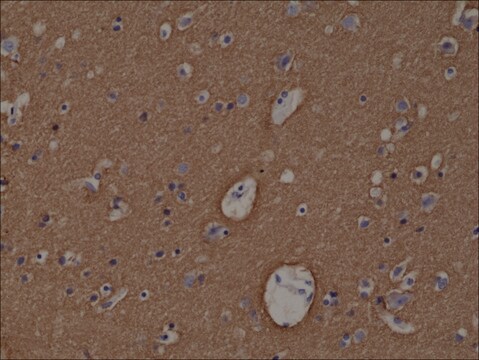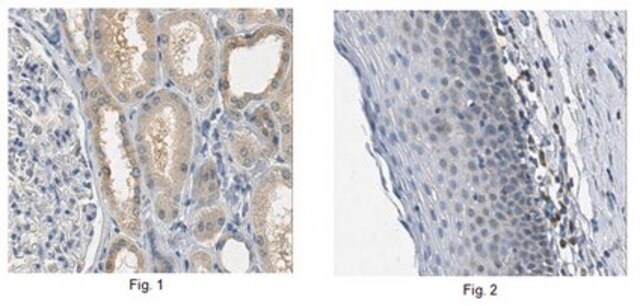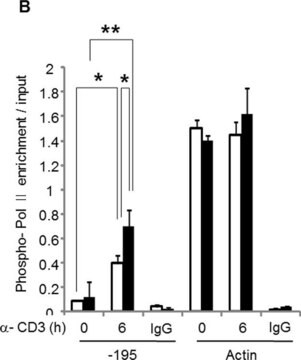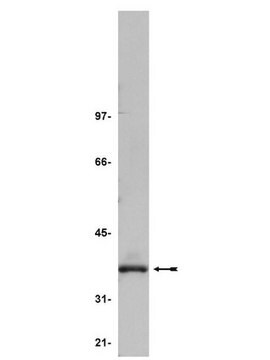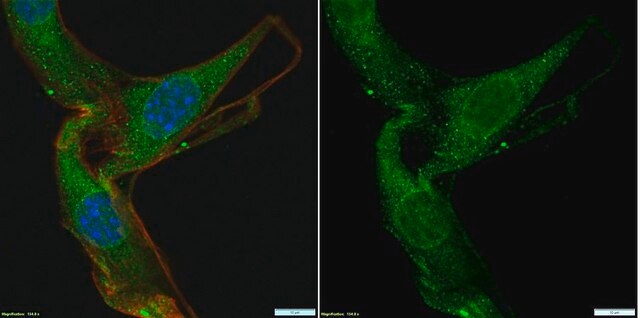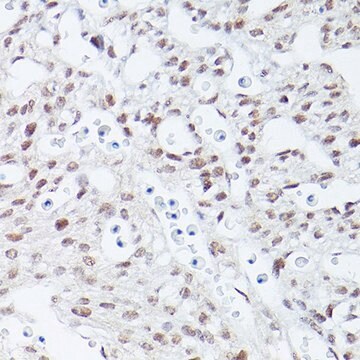SAB4200841
Anti-Syntaxin antibody, Mouse monoclonal
clone HPC-1, purified from hybridoma cell culture
Synonym(s):
Anti-STX1
About This Item
Recommended Products
antibody form
purified from hybridoma cell culture
Quality Level
clone
HPC-1, monoclonal
form
liquid
species reactivity
monkey, rat, human, dog, mouse, bovine
concentration
~1 mg/mL
technique(s)
immunoblotting: 0.25-0.5 μg/mL using human neuroblastoma SHSY5Y cell lysate.
isotype
IgG1
shipped in
dry ice
storage temp.
−20°C
target post-translational modification
unmodified
General description
Syntaxin-1(also known as HPC-1 antigen or Stx1),8-9 a 35 kDa molecule with carboxyl-terminal membrane anchor, is a synaptic protein identified by its ability to interact with the synaptic vesicle protein synaptotagmin
Specificity
Application
Biochem/physiol Actions
Physical form
Disclaimer
Storage Class Code
12 - Non Combustible Liquids
WGK
nwg
Regulatory Listings
Regulatory Listings are mainly provided for chemical products. Only limited information can be provided here for non-chemical products. No entry means none of the components are listed. It is the user’s obligation to ensure the safe and legal use of the product.
JAN Code
SAB4200841-25UL:
SAB4200841-VAR:
SAB4200841-100UL:
SAB4200841-BULK:
Certificates of Analysis (COA)
Search for Certificates of Analysis (COA) by entering the products Lot/Batch Number. Lot and Batch Numbers can be found on a product’s label following the words ‘Lot’ or ‘Batch’.
Already Own This Product?
Find documentation for the products that you have recently purchased in the Document Library.
Our team of scientists has experience in all areas of research including Life Science, Material Science, Chemical Synthesis, Chromatography, Analytical and many others.
Contact Technical Service